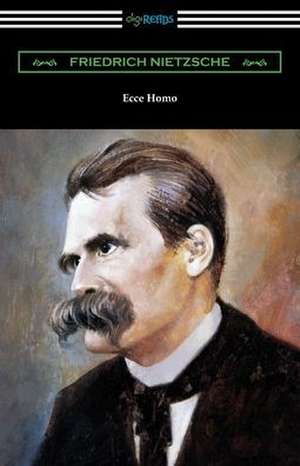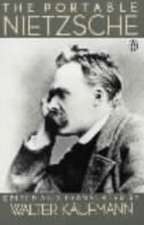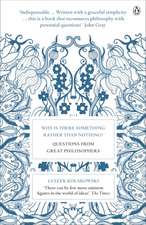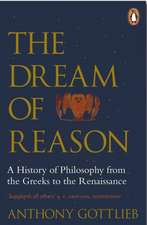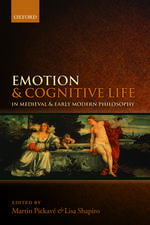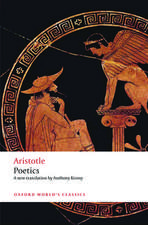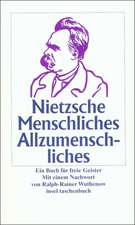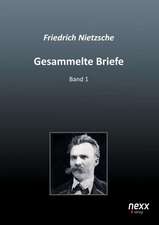Ecce Homo
Autor Friedrich Nietzsche Traducere de Anthony M. Ludovicien Limba Engleză Paperback – 6 feb 2020
| Toate formatele și edițiile | Preț | Express |
|---|---|---|
| Paperback (6) | 39.38 lei 6-8 săpt. | +18.23 lei 6-12 zile |
| Penguin Books – 25 noi 1992 | 46.28 lei 21-33 zile | +14.57 lei 6-12 zile |
| Oxford University Press – 3 sep 2009 | 46.65 lei 10-17 zile | +15.18 lei 6-12 zile |
| Chicago Review Press Inc DBA Indepe – 29 apr 2018 | 39.38 lei 6-8 săpt. | +18.23 lei 6-12 zile |
| Lulu.Com – 10 iun 2018 | 53.15 lei 6-8 săpt. | |
| Neeland Media – 6 feb 2020 | 66.65 lei 6-8 săpt. | |
| Lulu.Com – 7 apr 2018 | 71.16 lei 6-8 săpt. | |
| Hardback (2) | 153.96 lei 6-8 săpt. | |
| Lulu.Com – 11 iun 2018 | 153.96 lei 6-8 săpt. | |
| Lulu.Com – 7 apr 2018 | 201.44 lei 6-8 săpt. |
Preț: 66.65 lei
Nou
Puncte Express: 100
Preț estimativ în valută:
12.75€ • 13.64$ • 10.63£
12.75€ • 13.64$ • 10.63£
Carte tipărită la comandă
Livrare economică 18 aprilie-02 mai
Preluare comenzi: 021 569.72.76
Specificații
ISBN-13: 9781420966770
ISBN-10: 1420966774
Pagini: 138
Dimensiuni: 140 x 216 x 8 mm
Greutate: 0.18 kg
Editura: Neeland Media
ISBN-10: 1420966774
Pagini: 138
Dimensiuni: 140 x 216 x 8 mm
Greutate: 0.18 kg
Editura: Neeland Media
Notă biografică
Friedrich Wilhelm Nietzsche (15 October 1844 - 25 August 1900) was a German philosopher, cultural critic, composer, poet, philologist, and scholar of Latin and Greek whose work has exerted a profound influence on modern intellectual history. He began his career as a classical philologist before turning to philosophy. He became the youngest ever to hold the Chair of Classical Philology at the University of Basel in 1869 at the age of 24. Nietzsche resigned in 1879 due to health problems that plagued him most of his life; he completed much of his core writing in the following decade.] In 1889, at age 44, he suffered a collapse and afterward a complete loss of his mental faculties. He lived his remaining years in the care of his mother until her death in 1897 and then with his sister Elisabeth Förster-Nietzsche. Nietzsche died in 1900. Nietzsche's writing spans philosophical polemics, poetry, cultural criticism, and fiction while displaying a fondness for aphorism and irony. Prominent elements of his philosophy include his radical critique of truth in favor of perspectivism; his genealogical critique of religion and Christian morality and his related theory of master-slave morality; his aesthetic affirmation of existence in response to the "death of God" and the profound crisis of nihilism; his notion of the Apollonian and Dionysian; and his characterization of the human subject as the expression of competing wills, collectively understood as the will to power.[26] He also developed influential concepts such as the Übermensch and the doctrine of eternal return. In his later work, he became increasingly preoccupied with the creative powers of the individual to overcome social, cultural and moral contexts in pursuit of new values and aesthetic health.[19] His body of work touched a wide range of topics, including art, philology, history, religion, tragedy, culture, and science, and drew early inspiration from figures such as philosopher Arthur Schopenhauer,[5] composer Richard Wagner,[5] and writer Johann Wolfgang von Goethe.[5] After his death, his sister Elisabeth became the curator and editor of Nietzsche's manuscripts, reworking his unpublished writings to fit her own German nationalist ideology while often contradicting or obfuscating Nietzsche's stated opinions, which were explicitly opposed to antisemitism and nationalism. Through her published editions, Nietzsche's work became associated with fascism and Nazism;[29] 20th century scholars contested this interpretation of his work and corrected editions of his writings were soon made available. Nietzsche's thought enjoyed renewed popularity in the 1960s and his ideas have since had a profound impact on 20th and early-21st century thinkers across philosophy-especially in schools of continental philosophy such as existentialism, postmodernism and post-structuralism-as well as art, literature, psychology, politics and popular culture
Cuprins
Ecce Homo - Friedrich Nietzsche Introduction
Note on the Text
Chronology of Nietzsche's Life
Note on the Text
Chronology of Nietzsche's Life
ECCE HOMO: How One Becomes What One Is
Foreword
On this perfect day...
Why I am So Wise
Why I am So Clever
Why I Write Such Good Books
The Birth of Tragedy
The Untimely Essays
Human, All Too Human
Daybreak
The Gay Science
Thus Spoke Zarathustra
Beyond Good and Evil
Genealogy of Morals
Twilight of the Idols
The Wagner Case
Why I Am a Destiny
Notes
Descriere
Descriere de la o altă ediție sau format:
'I am not a man, I am dynamite.'Ecce Homo is an autobiography like no other. Deliberately provocative, Nietzsche subverts the conventions of the genre and pushes his philosophical positions to combative extremes, constructing a genius-hero whose life is a chronicle of incessant self-overcoming. Written in 1888, a few weeks before his descent into madness, the book sub-titled 'How To Become What You Are' passes under review all Nietzsche's previous works so that we, his 'posthumous' readers, can finally understand him aright, on his own terms. He reaches final reckonings with his many enemies - Richard Wagner, German nationalism, 'modern men' in general - and above all Christianity, proclaiming himself the Antichrist. Ecce Homo is the summation of an extraordinary philosophical career, a last great testament to Nietzsche's will. ABOUT THE SERIES: For over 100 years Oxford World's Classics has made available the widest range of literature from around the globe. Each affordable volume reflects Oxford's commitment to scholarship, providing the most accurate text plus a wealth of other valuable features, including expert introductions by leading authorities, helpful notes to clarify the text, up-to-date bibliographies for further study, and much more.
'I am not a man, I am dynamite.'Ecce Homo is an autobiography like no other. Deliberately provocative, Nietzsche subverts the conventions of the genre and pushes his philosophical positions to combative extremes, constructing a genius-hero whose life is a chronicle of incessant self-overcoming. Written in 1888, a few weeks before his descent into madness, the book sub-titled 'How To Become What You Are' passes under review all Nietzsche's previous works so that we, his 'posthumous' readers, can finally understand him aright, on his own terms. He reaches final reckonings with his many enemies - Richard Wagner, German nationalism, 'modern men' in general - and above all Christianity, proclaiming himself the Antichrist. Ecce Homo is the summation of an extraordinary philosophical career, a last great testament to Nietzsche's will. ABOUT THE SERIES: For over 100 years Oxford World's Classics has made available the widest range of literature from around the globe. Each affordable volume reflects Oxford's commitment to scholarship, providing the most accurate text plus a wealth of other valuable features, including expert introductions by leading authorities, helpful notes to clarify the text, up-to-date bibliographies for further study, and much more.
